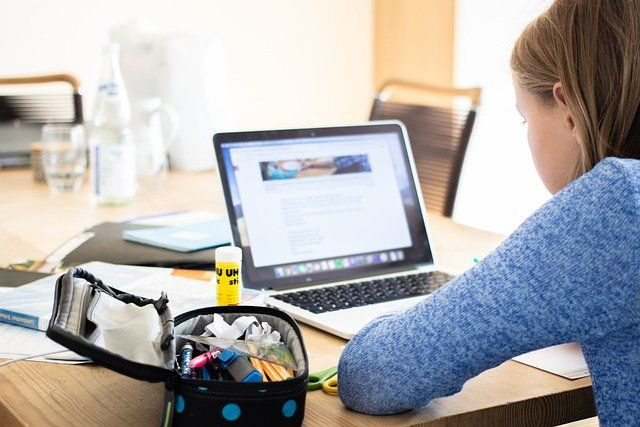Online Education During the Pandemic
Among the measures taken against the spread of COVID-19 is the shift to online learning

Corina Cristea, 16.04.2021, 13:36
Among the measures taken against the spread of COVID-19 is the shift to online learning. In Romania, the measure was put into place starting on 11 March 2020, and since then, different formulas have been applied, adapting to the stages of the epidemic as seen at the time. This decision has not been without consequences, as a crisis motivated measure, consequences that are hard to quantify, as per the fact that they are strongly tied to every students individual personal situation. The worst affected, of course, are the children in disadvantaged environments, which had in any case already made up the most sizable part of the 44% functional undereducated that existed in Romania before the pandemic.
A study run early this year by World Vision Romania confirmed that 40% of children in disadvantaged areas had no access to online learning. Mihaela Nabar, executive director with World Vision Romania, spoke to us about the diverse reasons for this situation:
“It is for financial reasons, where families could not secure the technical means and the infrastructure, such as a computer, laptop, tablet, or the lack of Internet connection. We have established clearly from a previous study run by World Vision Romania that one in three villages where we are active have very weak or nonexistent Internet signal. Also, teachers were not necessarily prepared to teach and test their students online. It is extremely important for all children to have access to education, because education is a right, and this means that we have to do everything within our means for them to exercise and have access to this right. The situations are very different from one household to the next, from one child to another. During this period, they did not have access to quality online education, but there have been situations where either teachers went door to door and dropped off worksheets that the children had to fill in, or where they sent WhatsApp messages to the phones of parents to which children had access to once in a while. There are many ways in which children managed to reach their teachers, but that does not mean access to quality education, not even education.”
Even though Romania is among the countries that fare well in terms of the Internet, the figures early this year showed that 237,000 students did not have access, and 287,000 students did not have access to equipment fit for online schooling. About 40% of students fell into both categories. Beyond the figures describing the children with no access to education, the fact that no solution was found for them led to figures beyond those that speak of education gaps, says Mihaela Nabar:
“91% of the children say that they or their parents have been affected psychologically. More than that, a fifth of the children, meaning about 23% of the children from the countryside believe that they are never happy. So all these things will definitely have repercussions on reintegration even while in person schooling, and we salute the decision according to which schooling has returned from online to classrooms, because it is the only possibility right now to reach the children from the most vulnerable communities.”
50% of the teachers who answered the study run by World Vision Romania say that their students will need catching back on subject matter, because they are behind, and would not be able to cope with upcoming evaluations, Mihaela Nabar told us:
“In addition, based on the evaluations run by World Vision Romania, with all the effort we are making, we find that children are dropping in evaluations. All these factors are predictors of the rate of dropping out of school, and the rate of dropping out of school increasing over this period.”
Even though official data on dropout rates will only be known at the end of the school year, in the summer, a large number of 14 to 15 year-old students have decided to abandon education during this period of not going to school. The reason is either for fear of not coping with testing, or because in the rural environment children were doing household work. At the same time, some of the students in high schools decided to get jobs while doing online classes, considering that they had no access to them, and once everyone went back to school, on February 8, not all went back to school. At a world level, statistics show that almost a billion children have been affected by the online shift. Compared to Romania, some countries have had better experiences, some less so, said Mihaela Nabar, from World Vision Romania, an organization spanning 92 countries:
“There are countries that have been less affected by the pandemic, because they were better prepared, they were more resilient. We will certainly become more resilient, and we will adapt better, as I hope, but there are countries that coped much better with the pandemic, and countries that have taken much worse measures for education during the pandemic.”
Beyond the level of preparedness in the face of this situation, one common point is that schooling online has left its mark on children and parents alike. Anxiety, depression, or vision problems caused by too much screen time are some of the consequences. The lack of socialization has definitely left children more insecure, and many of them have started to use erroneous grammar.






























